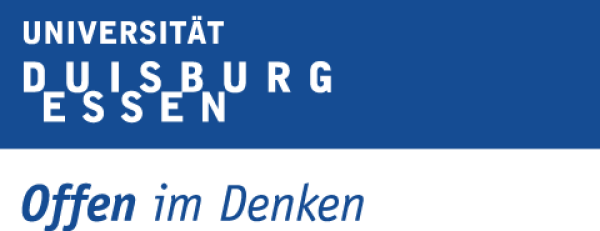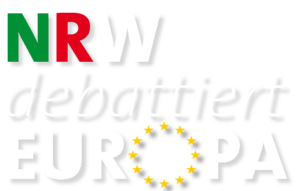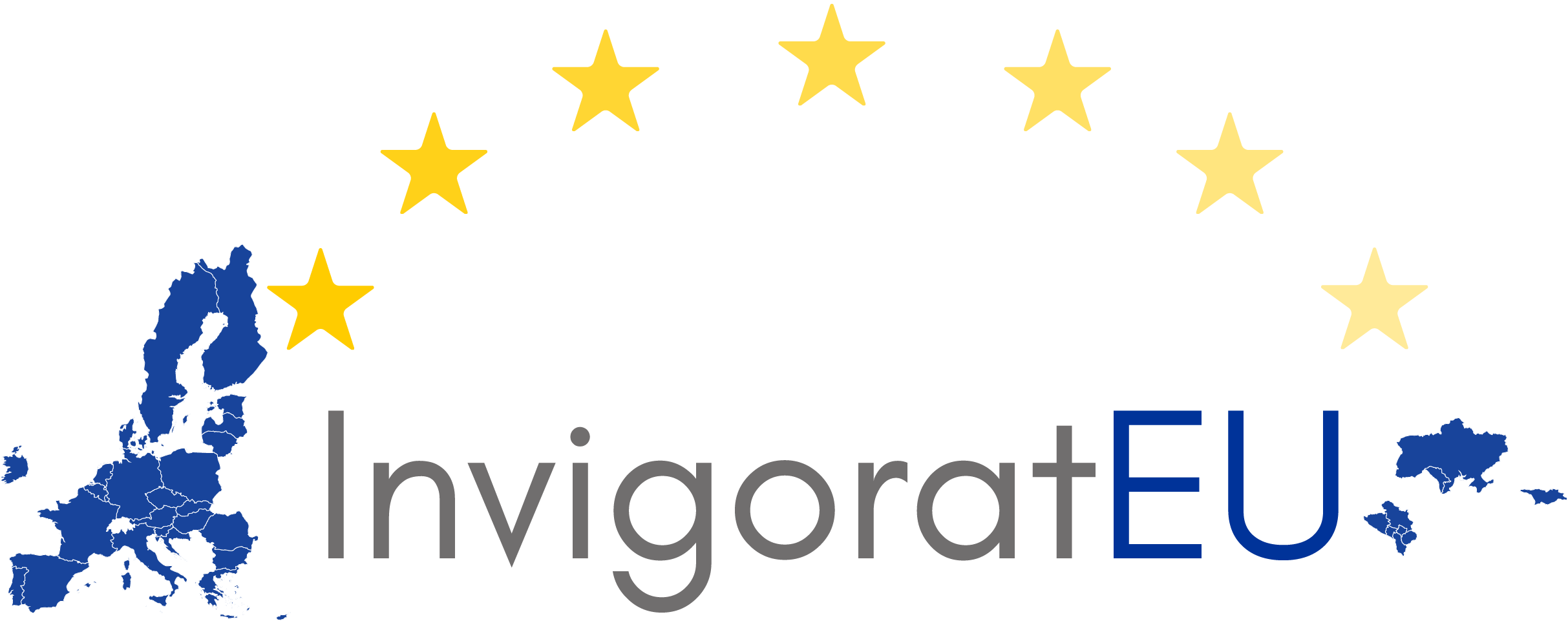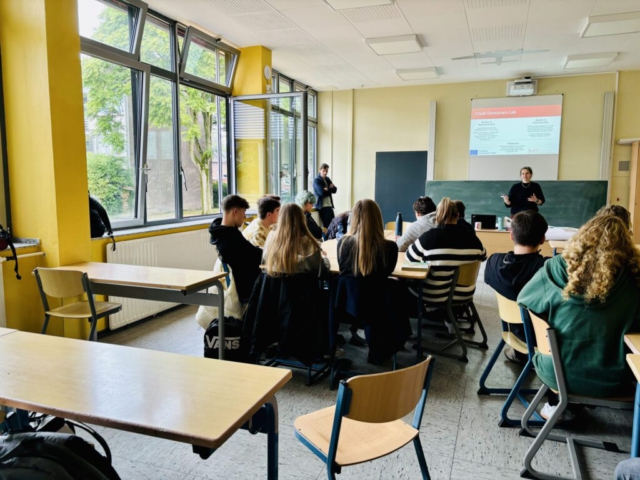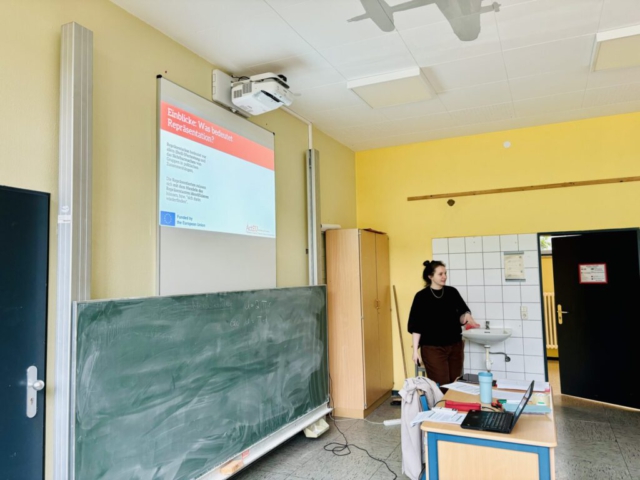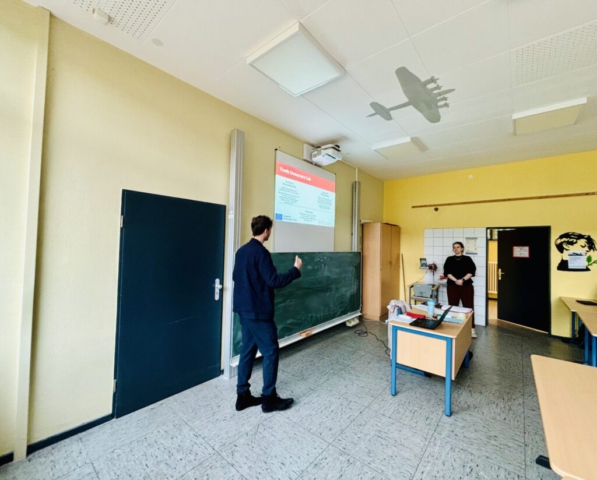On 19 June 2024, shortly before the summer holidays in North Rhine-Westphalia, a Youth Democracy Lab was held as part of the project “ActEU – Activating European Citizens’ Trust in Times of Crisis and Polarisation” in a senior year class at the Lise Meitner Gesamtschule in Duisburg. The lab focussed on current topics relating to representation, participation and trust in European democracy. The students were given the opportunity to actively participate in the research process and contribute their perspectives, suggestions and ideas for strengthening democracy. The Youth Democracy Lab was planned and organised by the project team in Duisburg.
Insights into the project and initial discussions
The Youth Democracy Lab began with a short mood chart of the students’ opinions and an insight into the underlying concepts of the project and initial research results. They were then divided into two groups to discuss at the “Representation” and “Participation” stations. The aim was to exchange opinions on the research results, enrich them with personal experiences and add further relevant aspects.
Creative methods and in-depth discussions
The lecturers used a creative method that served as an introduction and stimulus for the discussions – the students described politicians and political institutions using their associations with an animal and its characteristics. This enabled a playful but in-depth discussion of key aspects of integrity, reliability and a sense of responsibility in a political context, as well as a discussion about the motives and backgrounds of the young generation to participate.
Concrete recommendations
After the discussions, the groups collected concrete recommendations on the key questions of what politicians should do to strengthen European democracy and which topics they consider important to ensure that schools prepare young people well for life in a democracy. These valuable recommendations were then received by the workshop leaders.
Next Steps
Based on this “pilot” at the Lise Meitner Gesamtschule, similar workshops are now being held in all countries involved in the project. The recommendations and insights of the young generation from various European countries will then be analysed, summarised and used to develop toolkits for politicians and political education. We would like to thank the participating students for their dedicated cooperation and valuable contributions. We look forward to the further research process and the results of the upcoming workshops of other young people in Europe!
